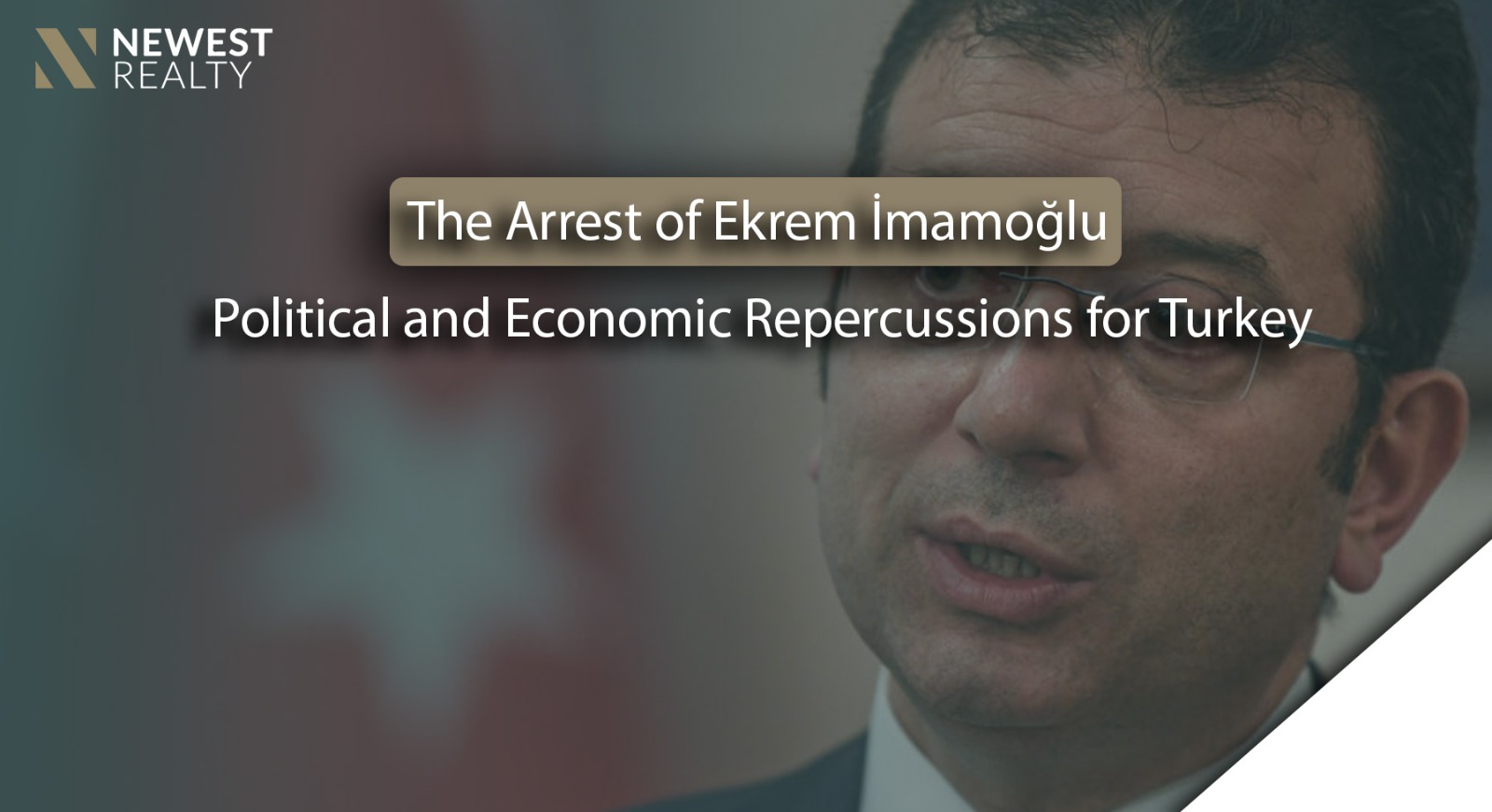The Arrest of Ekrem İmamoğlu: Political and Economic Repercussions for Turkey
In a move that has sparked widespread controversy in political and media circles, Ekrem İmamoğlu, the Mayor of Istanbul Metropolitan Municipality and one of Turkey’s leading opposition figures, was arrested on charges related to financial and administrative corruption. This development has opened a broad debate about the future of Turkey’s political and economic landscape, especially amid early preparations for the upcoming elections.
Background of the Arrest and Allegations
İmamoğlu, considered one of the most prominent opposition leaders in recent years, was placed under temporary detention following months of investigations. During this period, Istanbul’s public prosecutor’s office gathered legal and visual evidence, some originating from within the Istanbul Municipality itself. The charges involve financial corruption amounting to hundreds of millions of Turkish lira, with several district mayors, including those of Beylikdüzü and Şile, allegedly implicated.
Political Reactions and Internal Divisions
The arrest of İmamoğlu triggered sharp responses from opposition parties, who described the move as “an attempt to sideline one of the strongest political contenders ahead of the upcoming presidential elections.” They labeled it “a politically motivated decision” and demanded his immediate release before the conclusion of the investigations, a demand rejected by the Turkish judiciary.
Public demonstrations in Istanbul and Ankara were relatively limited, with official estimates indicating turnout at only 10–15% of the anticipated political mobilization capacity. The largest gathering occurred at Malta Square, with attendance estimated between 600,000 and 700,000 people.
Economic Impact and Government Response
News of the arrest caused a modest depreciation in the Turkish lira, prompting the Central Bank to inject over $6 billion from its foreign currency reserves in an effort to stabilize the market. Despite this intervention, the Turkish economy maintained relative resilience, supported by reserves exceeding $170 billion.
The Turkish government affirmed the independence of the judiciary, emphasizing that the actions taken against İmamoğlu were based on lengthy investigations devoid of political motives. The final verdict will rest with the courts.
Potential Impact on the Real Estate Market
The political controversy raised questions about its effects on Turkey’s real estate sector. The first scenario, should İmamoğlu be convicted, could result in the ruling party regaining full control of Istanbul’s municipality. This might accelerate the implementation of major projects and enhance the flow of municipal investments.
Conversely, if acquitted, the persistent division between the central government and major municipalities may continue, keeping the status quo intact with no immediate dramatic impact on real estate prices.
It is important to note that political changes typically affect the real estate market indirectly and require time to manifest. Economic factors such as inflation, interest rates, supply and demand, and macroeconomic policies play a more decisive role.
Conclusion
Despite some media outlets amplifying the repercussions of İmamoğlu’s arrest, the actual impact on Turkey’s economy and real estate market appears limited so far. The judiciary will deliver the final ruling, and the coming weeks will reveal whether this significant political event will have long-term consequences or if it is merely a transient political storm in Turkey’s volatile landscape.


